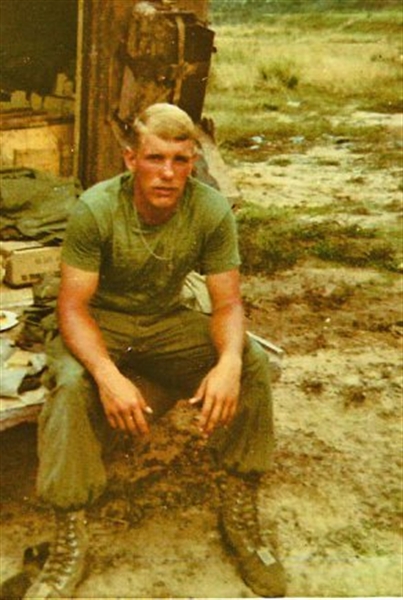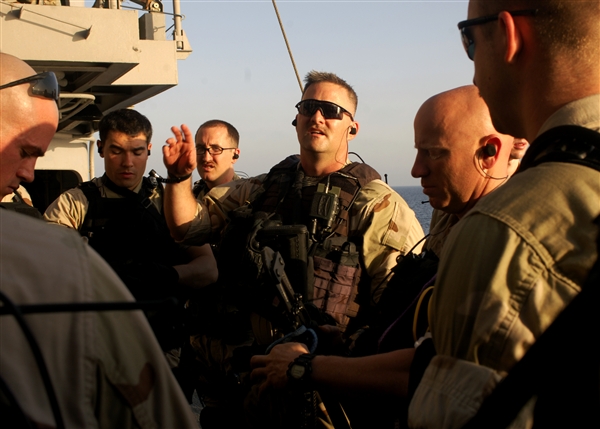WASHINGTON, Oct. 28, 2010 — Army leaders are committed to providing long-term support to survivors of the military fallen, and will continue to create and expand programs and resources that will help to achieve that goal, the Army chief of staff said yesterday.
“You need to know that your loved one’s sacrifice is both recognized and appreciated and won’t be forgotten,” Army Gen. George W. Casey Jr. told an audience of survivors and the people who support them during the 2010 Association of the U.S. Army Annual Meeting and Exposition here. “That’s our commitment to you.”
Casey, accompanied by his wife, Sheila, spoke on the importance of survivor care during a two-hour family forum, one of four held during AUSA’s meeting intended to put a spotlight on military families and the challenges they face.
Casey traced his passion for the issue and desire to help survivors back to his own loss. Just before earning his Army commission in 1970, Casey’s father, Army Maj. Gen. George W. Casey Sr., was killed in combat.
Decades later, Casey and his wife embarked on a journey to speak with surviving Army families around the world to gauge how they were coping, and what the Army was doing to support them. It became clear to both that after five years at war, the Army was just doing casualty assistance, and not much else, he said.
Survivors also expressed a need to stay connected with the Army for a longer time, rather than be cut off from the people and organization they had come to see as family.
“We had to figure out how to operationalize those two thoughts,” Casey said.
The result was Army Survivor Outreach Services, also known as SOS, which launched in April 2008 to provide dedicated and comprehensive support to survivors. Leaders tried to build a process with enough structure to call it a program, but with enough flexibility to address individual needs, Casey said.
“Grieving is a very individual process,” he explained. “You can’t have a cookie-cutter solution.”
Casey said he relies on feedback from a survivor panel that he created early on and includes spouses and parents of military fallen. He also heavily relies on feedback from other survivors across the Army, he said, as he invited the audience to voice their specific issues and concerns.
A surviving spouse expressed a need for better preparedness. She was fortunate, she said, that her husband discussed his wishes for everything from his funeral to his children prior to deployment, which saved her from having to do so at a very stressful time. But many others don’t want to broach the topic, whether for fear of predicting the unthinkable or for a lack of the right words. She suggested the Army create a training program to instill the importance of these discussions and to pass on resources that can help them prepare.
“Those are the kinds of discussions that are very difficult to have,” Sheila Casey said. “But I think that they are very important conversations.” It’s a gift to know what a spouse or family member wants for their funeral or for their children, she added.
Casey agreed it’s necessary to plan. His son just returned from a deployment in Afghanistan, and his son’s wife approached him with questions about what would happen if the unthinkable occurred. “That spoke volumes about her strength,” he said.
Creating a structured Army program for this issue is challenging, he acknowledged, since it involves such a personal topic. And training still isn’t a guarantee that soldiers will take the steps to prepare, he added.
Hearing stories from others can be just as helpful, he said. “But we are taking on the training part of this,” he added.
An audience member praised the military’s support of surviving spouses, but said many parents end up feeling unprepared and lost in the wake of a military death. Those without any military affiliations can end up feeling confused and are lacking in the same long-term support spouses receive, she said.
Robert Stokely, a member of the Army’s survivor panel and a surviving parent, fielded that question for Casey. The main focus should be on the spouse and children, but parents and siblings need attention as well, he said. Siblings, particularly, have received little to no support, he added.
“I was one of those dads who had no clue what the Army life was about,” he said. “I had to learn a lot fast, and I’m still learning a lot.”
Planning for worst-case scenarios is just as important for family members as it is for the spouse, he said. “If you don’t [prepare], you’ll get swept off your feet if it happens to your family,” he said.
Another survivor said her husband returned safely from a deployment in Afghanistan only to take his own life on his daughter’s birthday in 2007. She applauded the military for its suicide prevention efforts, but said more needs to be done. Suicide carries a stigma that creates isolation and an incomparable loss, she noted.
“Not only did I lose my husband of 10 years, I lost my military family and my entire unit,” she said. “They don’t know what to say to you.” She said she found help through SOS, but the military needs to expand on these types of programs to combat a growing problem.
Casey agreed. “We’re all, frankly, frustrated by our inability to stem the tide on suicides with all the huge effort going on in this area,” he said. “It’s something that’s not just an Army problem, it’s a societal problem.”
The Army’s five-year mental health study – the largest of its type on suicides – has the potential for enormous payoffs, Casey predicted. “It’s already given us great insights,” he said.
Leaders also are focusing on programs that are designed to build strength, so suicide won’t become an option. Casey cited the Comprehensive Soldier Fitness Program, which features online mental health assessments and training modules, as a tool that can help both soldiers and families build resilience.
The Army needs to raise mental fitness to the same level as physical fitness so seeking care for an emotional issue becomes comparable to seeking help for a physical wound, Casey said. Doing so will make inroads into combating the stigma preventing people from seeking help, he added.
Casey said he’s encouraged by evidence that the Army is making headway. Surveys show that 50 percent of soldiers now would be willing to seek mental health care. In years past, 90 percent said they wouldn’t, for fear of career repercussions.
Change will take time, but leaders are working on building on services so they can have the biggest impact for survivors, Casey said.
“Know you have a voice, and let us help you make your voice heard,” he said.
“I ask you to continue fighting the fight, because as you do it, things will change,” Sheila Casey added. “Don’t let up.”
Source:
U.S. Department of Defense
Office of the Assistant Secretary of Defense (Public Affairs)

 von
von 
